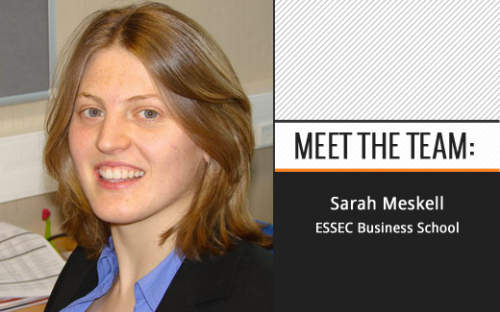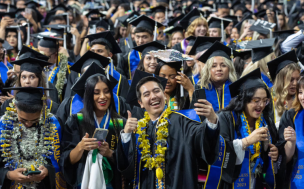Sarah Meskell is in charge of recruitment for the ESSEC Business School Global MBA Programme. Although ESSEC has a history of delivering MBA programmes, being one of the oldest schools in France, it continues to look for ways to be innovative in its teaching.
It launched the Global MBA programme in 2011 and is now recruiting for the third intake. The programme focuses on emerging markets therefore candidates must show that their work and life experiences have prepared them to think globally and move out of their confort zone. Sarah talks to us about what it takes to get onto the programme.
What about ESSEC makes it unique as a Business School?
We define ourselves as a school with the core values of innovation, creativity, excellence, responsibility, and open-mindedness. Diversity is key for us so we welcome all types of profiles from various backgrounds. We seek to attract students who are interested in being innovative and adapting to change.
We focus on a small intake because we believe the smaller sizes are an added value for the students. We have decided not to increase the batch size of our MBA programmes to over forty to fifty people, and our intake is also very international. The Global MBA is 90% international, the MBA in International Luxury Brand Management is around 85-90% international, the MBA in Hospitality Management has a little less at 70-75%, and the Executive MBA in partnership with Mannheim Business School has both a modular and a weekend track which attracts a lot of Paris based students.
Can you tell us the differences between your various MBA programmes?
In total we have four MBA programmes. Three of them are full-time, all twelve months long. One is a generalist program, the Global MBA and two are specialized, one in international luxury brand management, the other in hospitality management. The specialized programmes are designed for people who want to shift their careers to these industries or deepen their knowledge of these industries.
While the part-time Executive MBA is for more senior professionals who have a minimum of eight years experience in managerial positions.
The Global MBA allows students to study at two campuses, can you tell us a bit more about how this works out?
The programme is designed for people with a global mindset. Its twelve months long and very intense, with a specific focus on emerging markets. We have integrated a lot of opportunities to gain international exposure. The participants go to our Singapore campus in the second term. We organize a field trip to an emerging country in the spring (the students went to Russia this year). Students also work with companies on consulting projects which take them to various locations such as India, Venezuela, Uruguay, Egypt, South Africa, the Philippines, etc.
In total, students spend up to three months of their time outside France. In addition to this, we also offer exchange programmes for students who would like to visit our partner universities. For example, we currently have a student on exchange at Cornell University.
What types of companies do students work with on these field trips?
We have a substantial number of corporate partners and new projects are given to us each year. Ashok Som, Associate Dean of the Global MBA assigns projects by interviewing students to find out where their interest lies. We make sure our projects have a social component inbuilt. We’ve worked with Total, a microfinance organisation called PlaNet Finance, LCapital and many others.
How can a candidate impress you in their application?
I wouldn’t say it’s about trying to impress the admissions committee because when applicants try to impress us, they forget to be authentic. Applicants should be aiming to clearly show who they are. Show your strengths and weaknesses and convince us that pursuing an MBA is the right choice for you.
If your application file is selected you will then be interviewed by the Admissions Commitee. The interview aims at assessing your motivation, the goals you’ve set for yourself and how well you understand what the MBA programme has to offer.
We also focus on your work experience because of the practical nature of the programme. The students on the Global MBA normally have about six years of work experience. The minimum requirement is four years.
Preparing is key when it comes to putting together a good application. We can easily feel how well prepared a candidate is when we read the essays and if we feel the motivation for the MBA is clear. I like to compare this process to a job search in terms of the level of effort you put in.
Can you give us some examples of roles that ESSEC Global MBA graduates have gone on to?
Because the global MBA is a generalist degree, graduates have gone on to work in diverse positions such as business development, consulting, finance and audit, brand management, and sales and marketing. Our graduates also end up in various industries such as consumer goods, telecoms, energy, manufacturing, insurance, and many more.
RECAPTHA :
aa
b3
48
fa



 4
4 



Comments.